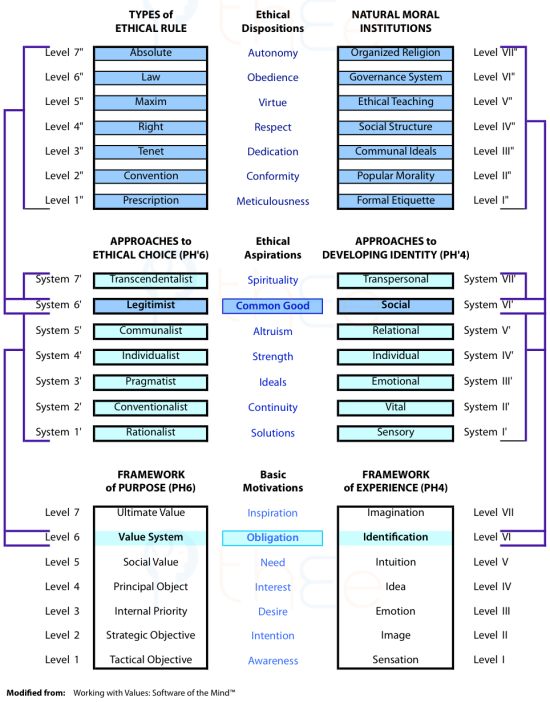Natural Moral Institutions in Society
Obeying Rules
We have considered ethical choice, but given little attention to the way that permeate society and form . «Making a choice» and «observing» (or not) are two entirely different aspects of the human use of values (or of the way that values use humans).
Society contains . Their function is to sustain society by ensuring that its members act to ensure its survival and coherence.
These institutions are termed «natural» because they spontaneously emerge in any community. Within , they allow us to exist as (), providing and sustaining both a personal identity and a communal identity.
The 7 Institutions
The 7 institutions are listed below. Their nature and distinctiveness can be grasped using the following simple schema:
- Need that is met;
- Characteristic concerns;
- Identity focus for those concerns.
Work out the details for each and then click to check the propositions:
► More about the natural moral institutions.
[] as a practical entity has a place in the framework for where it is responsible for delivering the values, especially , of [].
as an ethical entity has a different place within taxonomy in the framework for (i.e. it is the provisional formal-name for: ).
This is not surprising. Governing and government are products of human nature and intrinsic to human endeavour due to their necessity for group control. Any must be wholly embedded within the of its society. That is why, despite 's potential for good, it has caused an immense amount of harm through the millennia.
Any and its proposed operate within its society's moral context —which is the present focus ().
-
Continue to the moral influences on government;
and then
- Consider the ultimate and personal context for politics.
Originally posted: July 2009; Last updated: 12 June 2014.
